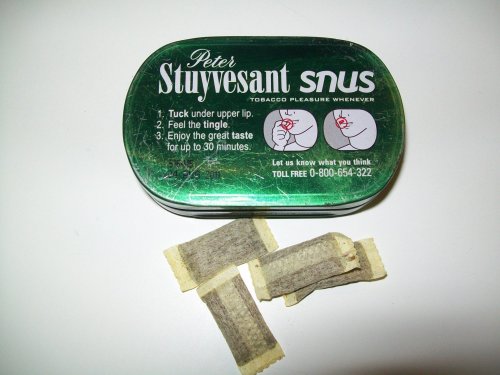
Here is the text of the article, which is behind a paywall, after the first view:
Thanks to mstave from reddit
Junk science damages health as experts get risks wrong
MATT RIDLEY
The Times
2:47PM September 12, 2016
One of the most salutary examples of people in authority getting risks wrong is a paper written in 1955 by the first head of the environmental cancer section of the US National Cancer Institute, Wilhelm Hueper.
The title was “Lung cancers and their causes” and he was absolutely convinced that “cigarette smoking is not a major factor in the causation of lung cancer”. He thought this was a cheap shot by the chemical industry to divert attention away from pesticides.
We now know that smoking is a major cause of lung cancer, whereas pesticides are not. History is littered with examples of experts being too reassuring about some risks, too alarmist about others. Not washing hands between dissecting women who died in childbirth and delivering babies? No risk, said the 19th-century medical establishment, ostracising Ignaz Semmelweis who’d had the temerity to suggest otherwise. Dietary fats cause heart attacks, insisted the medical establishment for the best part of five decades until very recently. It was once the consensus that tonsils should be removed whenever possible; no longer.
So I am no fan of arguing from authority on matters of risk. It’s evidence that counts, especially randomised controlled trials, the gold standard of science. The study published last week finding that statins are relatively safe, and that prescribing them to healthy people at even low risk of heart attacks should save many lives, made this point. The authors argued that the pro-statin evidence comes from randomised controlled trials, while the anti-statin arguments “reflect a failure to recognise the limitations of other sources of evidence”, a polite way of saying they are health-fad claptrap.
The heart-protecting benefits of anti-cholesterol statins have been found to far outnumber the side-effects after a scientific review blamed shoddy research for scaring people and consequently putting lives at risk. Picture: AFP The heart-protecting benefits of anti-cholesterol statins have been found to far outnumber the side-effects after a scientific review blamed shoddy research for scaring people and consequently putting lives at risk. Picture: AFP The argument is not that statins are risk-free but that the benefits outweigh the risks: it’s the relative risk that counts. Large, randomised trials find that statins greatly reduce the risk of heart attacks and strokes each year that they continue to be taken. That benefit far outweighs the relatively modest risks from side-effects. Notice that it’s the evidence that is convincing, not the authority of those presenting it. I could not care less that there is a medical consensus that statins are safe unless that consensus is based on good evidence.
The opposition to vaping provides a contrasting example where prejudice against tobacco products seems to have closed the minds of the medical establishment. Until recently most public health experts made precisely the same mistake with electronic cigarettes that the opponents of statins make — thinking only of the risk of vaping, not the benefit. Recent headlines such as “Vaping as bad for your heart as smoking cigarettes, study finds” were based not on a randomised controlled trial measuring the risks and benefits of both, but on one very limited small study of one largely irrelevant effect reported at a conference.
Worse, that study compared 30 minutes of vaping with five minutes of smoking and concluded that both can induce temporary arterial stiffening, a well-known effect of nicotine that has not been linked to disease, and that is also produced by caffeine. The damaging effect of smoking, both to the heart and in terms of cancer risk, comes not from nicotine at all but from combustion products. So the headlines were based on junk science. They could have read: “Vaping no worse for you than coffee, study finds”.
Tobacco-control advocates say the “endgame” for smoking will have been reached in a country when its smoking rate falls below 5 per cent. This is a very long way off as global rates continue to rise and smoking remains common even in countries with strong tobacco-control policies.
However, one country is fast heading towards achieving the endgame result. According to government figures, only 6 per cent of Sweden’s young men regularly smoked last year. The only plausible explanation for this extreme outlier is that 25 per cent of Swedish men use “snus”, a sort of tobacco tea-bag pressed against the gums — and do so instead of smoking.
Sweden is the only country in the EU where Snus is legal. As a result, Sweden is the country with the lowest rate of lung cancer among men. Picture: Supplied Sweden is the only country in the EU where Snus is legal. As a result, Sweden is the country with the lowest rate of lung cancer among men. Picture: Supplied As a result, not only is Sweden on the way to becoming the first country to get below 5 per cent of men smoking but it is the country with the lowest rate of lung cancer among men in Europe (it’s higher among Swedish women, who don’t use snus much), as well as having low rates of other smoking-related illnesses such as heart disease: a spectacular case of harm reduction that puts even statins in the shade.
Acknowledging this data, America’s Food and Drug Administration last year authorised snus to help protect public health. The European Union has not followed suit. This health-protecting product is not just discouraged, it is still wholly illegal throughout the EU — except in Sweden. Herein lies an interesting tale. When Sweden joined the EU in 1995 its snus habit became an issue in the negotiation. The country was reluctant to accept a ban on such a popular product which, even then, was obviously a safer alternative to smoking.
So the EU was forced to make an exemption for Sweden. To this day, 21 years later, you can legally buy and sell snus in the EU only in Sweden. Britain, incidentally, led the charge to ban snus within the EU and its government remains impervious to the evidence cited above. Many millions of lives could have been saved without that prohibition.
In preparation for a big conference on the subject, the World Health Organisation last week set out a list of things it wants countries to do to hamper the growth of vaping, such as a ban on advertising. It says not a word about trying to overturn the total bans on vaping in many countries, even though it is now very clear that vaping is mainly done by smokers and that it reduces the risks of smoking-related illnesses drastically — by 95 per cent according to Public Health England.
There is no fundamental difference between vaping (or snus) and statins. All treat conditions that carry high future risks: smoking addiction and high cholesterol. All carry risks themselves but much smaller ones than their benefits. Just as taking statins is better for you than not taking statins if you are at risk of heart disease, so switching to vaping or snus is far better for you than continuing to smoke.
The Times
source: http://www.theaustralian.com.au/sub...396512c80eedddb209161beb4f7?memtype=anonymous
reddit: https://www.reddit.com/r/electronic...r_australian_newspapermedia_outlet_publishes/






